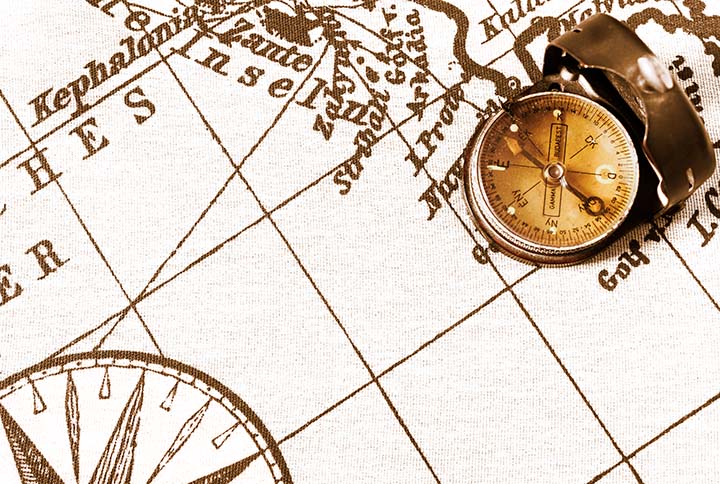

The current state of the extractive system
As with the resolution of past conflicts, the meeting of the victors at the end of the Second World War in the German city of Potsdam in the summer of 1945 once again divided the world into two blocs. The great Western powers implemented a new economic model allowing them to impose their pre-eminence over other countries.
Two political, social and economic models – in principle antagonistic – that would clash several times over the decades in small, low-intensity armed conflicts that would become the great lever of economic growth for the Western world.
However, the Potsdam Conference also confirmed that industrial capitalism – initiated at the end of the 18th century – was an exhausted economic model. The more than sixty million deaths resulting from the Second World War forced the old European monarchies – now evolved into Western democracies – to adopt much more subtle ways of achieving their economic goals. The new extractive strategy therefore had to be less catastrophic and more effective. Therefore, the new economic model that will be progressively deployed will no longer involve having to physically occupy territory but will be sufficient to control local elites.
With this new strategy, the United States, as the big winner and supported by a powerful military-industrial complex, will be able to displace the world’s economic centre – from Europe to North America – through the imposition of its currency, the financial pressure exerted by its banks, and the creation of technological dependence on a global scale. Thus, the establishment of their well-known multinationals – Amazon, Nike, Coca-Cola, Pepsi, Apple, McDonald’s, Disney, HP and others – will allow it to directly or indirectly conquer almost the entire world. Entertainment, mainly cinema and major sporting events such as the Olympic Games, the Super Bowl or the World Cup, will be the real weapons of mental and material subjugation that would make it possible to extend the American dream to the whole world.

The United States will be able to displace the world’s economic centre – from Europe to North America – through the imposition of its currency, the financial pressure exerted by its banks, and the creation of technological dependence on a global scale
Social peace, the basis of the new economic efficiency
It all began in the spring of 1951 in Montreal, when representatives of various Western intelligence agencies met secretly with university psychiatry professors at the Ritz-Carlton Hotel. As a result of that meeting, we know from declassified documents that the US military invested a large amount of money in McGill University in Montreal to research sensory isolation.
This research was initiated by Dr Donald Olding Hebb, who would eventually abandon the project when he realised the magnitude of the tragedy and completed by Dr Donald Ewen Cameron, who would take it to a higher level. Cameron went on to experiment with many patients who were subjected to a multitude of electroshock sessions, combined with sleep cures and constant repetition of recorded messages to the point of mental exhaustion.
The study found that sensory isolation is a way of generating extreme monotony that leads to a reduction in critical thinking capacity through the confusion of the individual’s mind. Therefore, when a person is not able to reason… we are in trouble!
The results of all these experiments will allow Western intelligence agencies to design mechanisms of control over their population to guarantee social stability within democracies. Consequently, the idea of freedom of speech, freedom of the press and the right to private property, the fundamental basis of the free market, will be repeated ad nauseam. To ensure economic efficiency, competition will be made an instrument to drive economic growth, based on the premise that “if the company next door has better products and more sales than me, I will consequently have to develop better ideas to be better than my competition”.
Not least, the studies on sensory deprivation will enable Western intelligence agencies to develop interrogation manuals – such as the famous KUBARK manual of the US military and the CIA – to be used against internal and external dissidents of the system the West’s postulates.
The management of fear
The technological breakthrough of World War II would take humanity into outer space – to the Moon and beyond – but it also led to the development of the atomic bomb as a weapon of global destruction. It will be used as an instrument of political pressure that persists to this day.
The five main arms manufacturing countries in the world – the United States, Britain, France, Russia and China – are the ones who are in charge of our peace. They make a business out of war, but they sell peace, above all, through the propagandist MSM serving Western hegemonic powers that test the ‘democracy’ of each country. They are big media that confuse freedom of expression with freedom of pressure and decide who is a dictator or a coup leader, which incidentally has the “bad habit” of making people vote to find out what they think about that policy or any other issue that may affect them. And those media outlets that don’t follow these guidelines are shut down or taken to the confines of the system. The news shows a reality that often doesn’t exist to suggest, isolate and pit us against each other!

Countries like the United States, England, France, Russia and China – they are the ones who are in charge of our peace. They make a business out of war, but they sell peace, above all, through the propagandist MSM serving Western hegemonic powers that test the ‘democracy’ of each country.
Economic shock therapy
As everyone knows, the Wall Street crash of 1929 triggered the Great Depression of the 1930s. By 1932, some 5,096 banks went into receivership. Their collapse drove many companies into bankruptcy, which saw stocks of goods accumulate, and led to a significant fall in prices, especially in the agricultural sector. Finally, the decline in economic activity led to a runaway rise in unemployment.
Influenced by the economist John M. Keynes, the newly proclaimed President of the United States, F. D. Roosevelt, launched a major public employment programme to get people back to work: the policy known as the New Deal. But it was not until after the Second World War that the Depression ended, thanks in large part to the implementation of the famous Marshall Plan, which generalised Keynes’s regulatory and interventionist model to most of the Western world.
Contrary to Keynes’ postulates, we find already in the late 1940s a small group of intellectuals – known as the Mont Pelerin Society and led by the Austrian economist Friedrich August von Hayek – who were convinced that if governments stopped providing services and regulating markets, the problems of the world economy would solve themselves. One of its leading representatives and professor of economics at the University of Chicago, Milton Friedman, believed that through economic shock therapy, he would push societies to accept a purer, deregulated capitalism.
Indeed, the theses of the shock doctrine have been imposed all over the world in different processes. These radical measures have triumphed not so much from the hand of freedom and democracy but from their imposition through shocks, crises and states of emergency. Thus, far from sugar-coating the role of the US in becoming a global hegemon, its ability to control the world is due to sanctions, restrictions, blockades, freezes, confiscations or military action.
Above all, the role played by the creation of a specific international bureaucracy, generated strictly because it does not depend on the United Nations and is therefore exempt from any direct control that might upset the international community, has been essential. These supranational bodies – World Bank, World Trade Organisation and International Monetary Fund – have executed all these economic shock therapies by the book all over the world, combining political pressure with extortion. And there is no shortage of examples!

Milton Friedman believed that through economic shock therapy, he would push societies to accept a purer deregulated capitalism.
A system in need of a financial mafia
In 2004, the American John Perkins – a former employee of the American consulting firm CHA Consulting, Inc. – published an interesting book entitled Confessions of an Economic Hit Man”, in which he explains in detail how he participated in different processes of economic colonisation of Third World countries, especially on the South American continent, during the 1980s.
Perkins, as chief economist at CHA Consulting, had the task of identifying countries with natural resources of interest to the clients – mostly corporations – represented by his consultancy.
Once identified, the next stage was to send a “small army of jackals” to the country in question to promise that, with the sale of its resources, the country would achieve Western standards of social welfare and economic stability. Finally, the country was forced to take out a large loan – through the World Bank or other related organisations – justified to the public as part of the deal and because it had neither the technology nor the infrastructure to extract, produce or manufacture the natural resource.
But this amount of money never reached the country in question, since it left the World Bank – based in Washington – and was diverted to an account in Houston, Texas or San Francisco, where, funnily enough, the owner was a company that worked for the consultancy, and which specialised in the construction of the infrastructure necessary to extract, produce or manufacture the natural resource.
Thus, the money was used to pay for the cost of the construction – power stations, roads, industrial parks, ports – which in the end only generated large profits for the companies awarded the contracts. It is true that, to a lesser degree, they also ended up enriching a local minority who owned the basic industries or commercial establishments, but to the detriment of the majority. Thus, at the end of the process, all the country’s economic resources earmarked for health, education or other public services were used to repay those loans. As John Perkins explains, knowing upfront the country’s inability to repay the loans was an important part of executing the plan.
Thus, this system has allowed Western corporations or supranational bodies – the World Bank, the World Trade Organisation and the International Monetary Fund – to create a parallel empire that controls large parts of the planet: the so-called “areas of influence”. It is for this reason that Western democracies can tell one of these “voluntarily influenced” countries that if it cannot repay its loans, it can always sell its resources to be exploited… without the obligation of a social or environmental commitment; or that it has to allow the construction of a military base on its territory, or that it has to vote against certain countries considered “enemies” at the next United Nations meeting.
When the president of one of these countries does not accept, the government is often intervened or overthrown. The process starts with a strong national and international smear campaign, false news of all kinds is created to condition public opinion and, in the end – in favour of democracy – the coup d’état is carried out with full justification. And if it did not go well, he would end up being assassinated. Contemporary history is full of examples: Mossadeq in Iran (1953), Ngô Đình Diệm in Vietnam (1955), Lumumba in the Congo (1960) Allende in Chile (1973). More recently, the pressures of all kinds that Lula da Silva has had to endure to stop the deforestation of the Brazilian Amazon, and Maduro to nationalise Venezuelan oil or Petro for the decarbonisation of the Colombian economy.
The economy of death
In 2009, amid the global recession, the English psychologist Oliver James published the book “The Selfish Capitalist”, which concludes that behind the mental illnesses of today’s Western society lies the capitalism that has been practised for the last fifty years. Simplifying a lot, the thesis of the book exposes how the Anglo-Saxon neoliberal economy has pushed individuals to want to have more and more cars, mobile phones, clothes, and money… and all this has led to permanent dissatisfaction of the individual. Based on a study published by the World Health Organisation in 2004, concludes that mental illness affects almost 23% of the population in the Anglo-Saxon world and 11.5% in the rest of the European countries, given that they entered the neoliberal wheel later.
For example, in the United States, the number of young students with huge debt is increasing, just as there is a huge number of people in debt for healthcare, credit cards or mortgages. So this system, designed to exploit the so-called “developing” countries, has now turned against the West.
On the other hand, neoliberal economics has sought to maximise short-term profits without taking into account the social cost and environmental impact. And here, neoliberals like Friedman got it wrong: beyond the short term, we need to increase profits in the long term, so that everyone wins. If we are guided by the goal of paying a decent rate of return to investors who invest, we can begin to change the model.
According to the latest report by the Stockholm International Peace Research Institute (SIPRI), global military spending increased by 3.7% in real terms in 2022, to a new all-time high of $2.24 trillion. If much of this money went to pay the same companies that get these million-dollar contracts, but instead of paying to make missiles, it would go to collecting all the plastics in the oceans, restoring destroyed natural environments, cleaning up the waste dumped in the oceans… the planet would be a much better place. And in this process, new technologies can help us to make it possible.

This system, designed to exploit the so-called “developing” countries, has now turned against the West.
Multipolarity
This system has worked as long as the winners have been the United States, since it allowed their allies to take a piece of the pie on the condition that they supported its international policy or facilitated access to their markets for its companies. The United States has shared the pie with aligned countries, but not with those who were willing to dispute its economic interests.
At this point, we are entering a new era where the distribution of political, military and financial power will no longer rest with a single country. In short, the world will no longer dance to a single tune. We have already begun to dance to the tune of oriental music, to the rhythms of the balalaika, combined with a little samba, a touch of Indi-pop and a dash of mbaqanga.
11Onze is the community fintech of Catalonia. Open an account by downloading the super app El Canut for Android or iOS and join the revolution!
Leave a Reply
You must be logged in to post a comment.





Amazing article. I read it to my family at Christmas.
Thank you, Carme! That’s a curious answer. We are still at La Plaça.
Gràcies
Gràcies a tu Joan, per llegir-nos! Seguim a La Plaça.